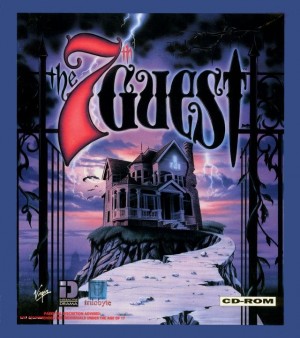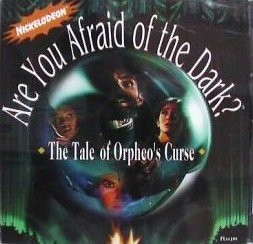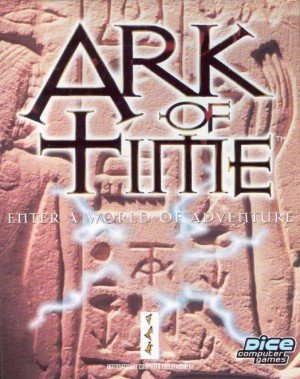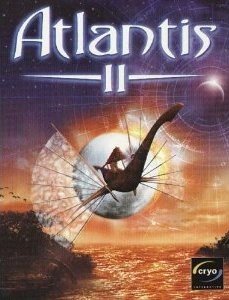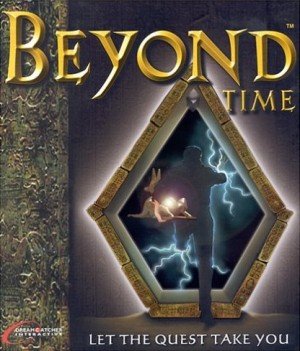Children’s adventures
One of the best unpublicized (until today) benefits of having children is that you can purchase many really cool things intended for kids, for yourself, and still keep your authority, pride and reputation intact. Strange looks from clerks cause no anxiety for me, as I smile reassuringly and state: “This light saber is for my little boy.” Little do they know I refer to the inner child, as I sprint from the counter in glee, ripping the plastic wrapping off my latest puerile purchase, making daunting ballast-gone-bad noises to terrified shoppers in the parking lot, before taking off in the Millennium Isuzu.
Other than this particular accessory to parenthood, I’m certainly no expert on children’s games. However, having children of your own does give you some insight as to what kids like, what they want, and what’s available. To define the terms “kid/child/children,” for purposes of this article, we are referring to that general age group from five onward, with a concentration on the toddler to early teens.
What Kids Want
Adventure games and children would seem to be a perfect match. Like macaroni and cheese, the simple word adventure is ever tasty to the childish palate. Whether it’s reaming out a pretend highway in the dirt for a Hot Wheels race, building a Lego empire, or writing and illustrating their own book; every kid in the world (even the ugly, loud ones that break the sound barrier in the grocery line) loves an adventure.
As far as adventure games are concerned, I think it’s safe to assume that kids want something immediately gratifying, easy, fun, funny, and or otherwise engaging. These are basic and general qualities that shouldn’t be a stretch for any developer. As a rule, younger children are fairly predictable and uncomplicated, so fulfilling these basic requirements should be easy, right? The reality is that often the end results are more cookie-cutter than creative and inspiring.
With so many PC games available for kids, it’s no wonder that many seem to be thrown together in tandem with a brand, or as an afterthought for the quick bucks that Saturday morning commercials generate. It is with due merit then, that Adventure Gamers asks the question: what will the future of adventure games for children be?
To get a glimpse of what that future might be, it’s necessary to consider what’s currently available to our kids in the way of adventure games, and those games whose prime directive is fun and adventure.
What They Get
Children’s adventures are probably best thought of as a small bezel in a clockwork market. The “adventure” often gets blended in and sometimes altogether lost in a genre-mixing puree that’s anything but “pure.” At least in the terms we are discussing here. So what we have is a bevy of games that borrow the exciting elements of adventure games but often fail to carry them through responsibly.
The majority of PC games for kids are brand based. It’s a given that if a child likes a TV show, they’ll inevitably talk their parents into getting brand-based EVERYTHING. Consider, for example, what has become the ageless phenomenon of SpongeBob Squarepants. THQ uses the Nickelodeon license well with this and many of the most popular kids shows, and many of the resulting games have been of excellent quality. Also included among them are monster sellers such as Hot Wheels, Bob the Builder and animated movie tie-ins like the recent Finding Nemo.
Then you have the smaller developers and publishers whose focus is on creating their own characters, such as Freddie Fish, Pajama Sam, SPY Fox, Putt-Putt, and others. These are all Humongous Entertainment creations, though now a division of Infogrames, currently owned by Atari Kids. These games focus on entertaining while teaching; encouraging responsibility, teamwork, critical thinking, and involving children in story lines of varying complexity. I have to say, most of the games developed by Humongous (and I own all but a few titles) successfully pull this off, and in fact, some have a flavor distinctly reminiscent of older LucasArts adventures (see SPY Fox and Pajama Sam).
Is Learning Fun?
The category of “edutainment” was purportedly born of a successful fusion of education and entertainment, wherein the child learns a little something but not at the expense of fun; hopefully in addition to. I don’t disagree with the notion, but I think that it can only be pulled off successfully as long as it’s not sneaky, or invasive. It’s not that easy of a thing to do. Try explaining the process of photosynthesis to a child without being technical, and keeping his attention. You’ll get the idea.
That’s the ultimate question with edutainment, the fun to learning ratio. Kids always prefer more jelly than peanut butter, of course, and though sometimes gullible, perceptive kids can usually smell a fraud a mile away. They can always tell the difference between cookies made with Splenda and those made with sugar. So they will tire easily of games that promise a really cool premise, yet tax their noggin without any kind of practical rewards. That’s an aftertaste they remember.
Besides the aforementioned, Knowledge Adventure is a company that clearly comes to mind as a successful edutainment developer, published now by Vivendi Universal Games and better known, at least to parents, for their excellent Jump Start series.
For those a little older, the Nancy Drew series, graciously capitalized in the form of true adventure games by Her Interactive, has garnered much acclaim. Amy Janas, marketing manager for HI, with over ten years in the console game and PC software industry, believes that children’s use of computer and video games leads to the adoption of other technologies and builds confidence in their use of computers. An addendum to that might be that these children, if so encouraged, may also turn out to be our future game developers.
What Can We Give Them?
So what is the future of children’s adventure games?
I talked briefly with Linda Weal, media coordinator for Viva Media, formerly Tivola – known for quality edutainment titles for kids of all ages, including the excellent science adventure series: Bioscopia, Physicus, and Chemicus. When asked what she thought could contribute to better adventure games for children, she commented, “There should be more of them! More varied themes. Kid's gaming is a tiny sub-sector of the whole industry, and it seems to me there are a lot of kids. I think there is a lot of room for this market to grow and diversify.” Certainly as much room to grow as the children who would play them.
Personally, I have seen the future of children’s adventure games, and that future is Great Journey, by Rebelmind Studios. CEO Darek Rusin has created a gem in this pure adventure for children. If you haven’t checked out the preview, do so now. What I say next will have much more meaning if you do. This games features, design, and entertainment value are so kid-smart, that it makes you wonder why there aren’t more like this title to chose from.
The answer of course, is that it isn’t as easy as it sounds, and yet Rebelmind has set an impressive bar, using feedback from actual children to gauge the game's playability and credibility. Perhaps this is one answer for better quality games – more kid beta testing.
What about more kid-friendly logic? They don’t always want puzzles that have to do with words, numbers, letters, and state capitols. Critical thinking can be very situational. Piglet's Big Game is an adventure game for kids that’s an excellent example of this. Piglet is placed in various situations in his friend’s dreams wherein he has to muddle his way out by accomplishing certain tasks, finding his brave face along the way.
Remember when you were a kid and you used to wonder why your parents insisted you wash your hands before eating a bowl of cereal, protesting “But I’m using a spoon!” Or you were shocked to learn one day that your teachers didn’t live at school? You have to love childish logic like that. So a return to real world kid logic would be something that could be expounded on in future adventure games. There’s certainly no lack of source material. Most publishers will be deciding their projects shortly after the New Year, and we would hope they would consider the significant need for well-made adventure games for children.
We will hope that in their consideration, they take note of the need for those games that are well-designed, have strong help features, intuitive interfaces, frustration-free challenges, true replayability, and enough options and difficulty levels to create personalized experiences for all impressionable minds.



